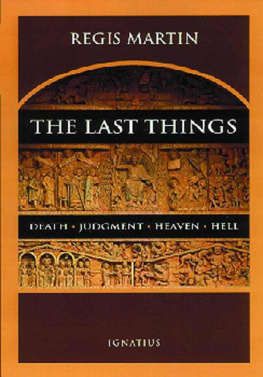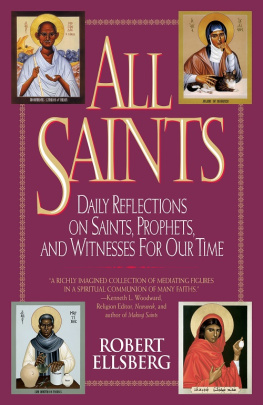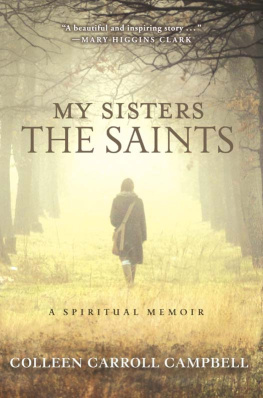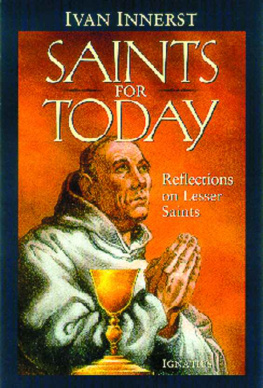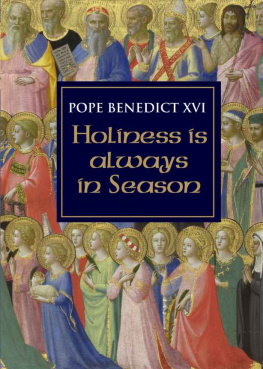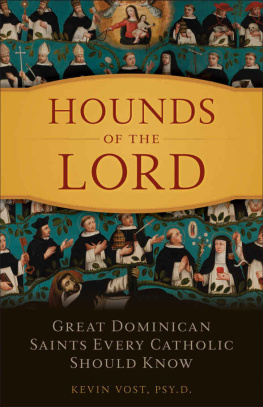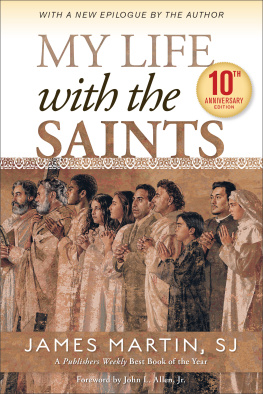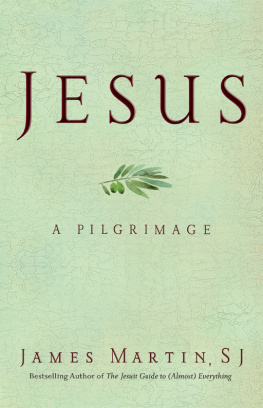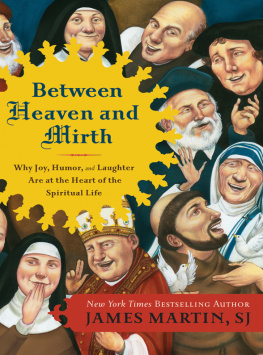


Emmaus Road Publishing
827 North Fourth Street
Steubenville, Ohio 43952
2013 Regis Martin
All rights reserved. Published 2013
Printed in the United States of America
18 17 16 15 14 13 1 2 3 4 5 6
Library of Congress Control Number: 2013953991
ISBN: 978-1-940329-14-7
Unless otherwise marked, Scripture quotations are from Revised Standard Version of the BibleSecond Catholic Edition (Ignatius Edition) Copyright 2006 National Council of the Churches of Christ in the United States of America.
Used by permission. All rights reserved.
Excerpts from the English translation of the
Catechism of the Catholic Church for the United States of America copyright 1994,
United States Catholic Conference, Inc.Libreria Editrice Vaticana.
English translation of the Catechism of the Catholic Church:
Modifications from the Editio Typica copyright 1997,
United States Catholic Conference, Inc.Libreria Editrice Vaticana.
Noted as CCC in the text.
Cover design and layout by: Theresa Westling
Cover art: Gianni Dagli Orti / The Art Archive at Art Resource, NY
Chicken, still life, paint on wood, 1639 / Binoit. Peter (fl. 1611-1624)
For Roseanne
Man never stops seeking: both when he is marked by the drama of violence, loneliness, and insignificance, and when he lives in serenity and joy, he continues to seek. The only answer which can satisfy him and appease this search of his comes from the encounter with the One who is at the source of his being and his action. The road is Christ. He is the Way, the Truth, and the Life, who reaches the person in his day-to-day existence. The discovery of this road normally comes about through the mediation of other human beings. Christianity, even before being a sum of doctrines or a rule of salvation, is thus the event of an encounter.
Pope John Paul II, Letter to Msgr. Luigi Giussani on the
Occasion of the 50th Anniversary of the Movement
Communion and Liberation, February, 22, 2004
Being Christian is not the result of an ethical choice or a lofty idea, but the encounter with an event, a person, which gives life a new horizon and a decisive direction.
Pope Benedict XVI, Deus caritas est, 1
The Faith is not given us in order that we preserve it, but in order that we communicate it. If we dont have the passion to communicate it, we dont preserve it.
Luigi Giussani, Testimony before the
XXI Plenary Assembly of the
Pontifical Council for the Laity, 2004
CONTENTS
It was the morning of the last day, and the driver, his engine idling in the frozen air, was waiting to whisk me off the mountain down into the valley far below, to a world very different from the stillness and peace I had come to experience amid the high and silent hills surrounding the Abbey of the Holy Trinity. I had just finished giving my final conference when, out of the blue, it hit me that I might actually try and make a little book of these reflections. I had been asked to come all this way to Utah to give them, and the monks, God bless them, managed triumphantly to survive the ordeal, so why not transcribe them into something less fleeting than the snows of yesteryear?
In point of fact, a bakers dozen had been delivered, given twice each day to a wonderfully captive audience over the course of a week, their length exactingly held to twenty-five blessed minutes apiece. The monks are very old, the genial Abbot informed me over the phone (who, it turns out, was fairly long in the tooth himself), and they may not stay awake if you go on too long. I understood perfectly. Hadnt my wife and children been telling me for years to stop talking? Excellent advice. Besides, if one were regularly required to leap out of bed at 3:00 a.m., who wouldnt fall asleep?
Arrangements were duly made for the first week in January, during which I would be expected to edify an eager if aging community of nearly twenty Cistercian monks, their beautifully sequestered setting nestled beneath a series of steeply wooded slopes some fifty miles outside Salt Lake City.
About what? My initial answer came swiftly to mind. Silence . Gods first language. What better threads to weave together than those mysteriously wrapped about the world of silence? I would start at once. However, in my first innocence I had quite forgotten one or two things. To begin with, I knew almost nothing of silence, save only that there is never enough of it amid the crowded circumstances of my life. Where and when is a father of ten children, teacher of hundreds of students, to find time to enter that privileged realm?
Where shall the word be found, where will the word
Resound? Not here, there is not enough silence
(T. S. Eliot, Ash Wednesday,
written in 1930 following his
conversion to Christianity.)
Andpoint twowho was I to tell men steeped in traditions stretching back twelve uninterrupted centuries or more about the very medium in which their whole lives are spent? It would have been the sheerest presumption. Id have just as soon set about catechizing fish on the mysteries of water.
Was there another topic I could come up with? Something about which I should not need to feel entirely mortified to speak? A subject, moreover, of absolute, riveting importance? I should not dream of traveling thousands of miles to a remote monastery in order to play the dilettante to serious men determined on the life of holiness. The choice was obvious. I would speak of the Mystery of Jesus. And, of course, Mary, the Church, and the saints, and ourselves in living relation to them. A tall order, to be sure, but worth the effort.
What follows is a series of meditations, then, whose single aim is to illumine the mind, to mobilize the heart, so that the reader may be moved to engage the God who has first come among us for our salvation. To give God permission, as it were, to enter our lives in order then to draw us straight to His heart. Because we are beings most profoundly and precisely made for God, heaven must become the deepest desire we have. Do we have that relish for eternal life? May it please God to possess us more and more each day. And may these few pages help to feed that hunger.
I have tried to preserve the spoken quality of the experience so that, as nearly as possible, what you are holding in your hands is a faithful rendering of the talks as I delivered them to the holy men who kindly came to hear them. Some liberties of course have been taken to improve the quality of the prose, to move it along in ways more agreeably literary. But these have been few and designed to improve the flow of the narrative.
I offer these pages to my wife, who, for all that she was obliged to give up in order for me to go to Utah, never faltered in urging me to get on with it.
.The Complete Poems and Plays 19091950 (New York: Harcourt, Brace & World, Inc., 1971), 65.
Thank you for coming. I am honored and delighted to be here. Of course I dont know what options you had. Perhaps you were free to choose between me or going back to bed... in which case Im awfully grateful youve elected to stay awake. I shall certainly endeavor to keep you that way.
Why dont we begin with a prayer, asking God to bless this time we spend together. A simple Our Father, followed by a brief invocation to the Holy Spirit, seems sufficient to launch this modest enterprise.
By the way, I always tell my students on the first day that Id like to begin all my classes that way. And that those of atheist persuasion who choose to object can just go and offer it up. It will do their souls no end of good.
Next page

